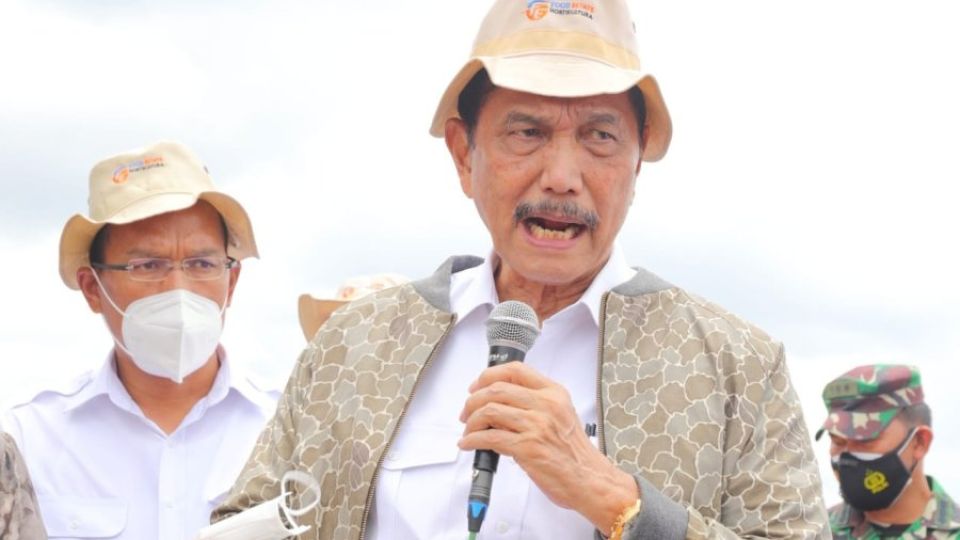July 11, 2023
JAKARTA – Indonesia will stand firm on its bans on mineral ore exports in order to boost its downstream industry, despite the International Monetary Fund calling on the country to reverse its policy, the government says.
Investment Minister Bahlil Lahadalia said on Saturday that President Joko “Jokowi” Widodo had instructed him to “fight” any parties that sought to interfere in the country’s sovereignty.
This was related to the recommendation in the IMF’s recent report that encouraged the Indonesian government to phase out the bans on mineral exports, as the fund feels they may destabilize “the multilateral trade system”. Although the IMF did not direct its criticism squarely at Indonesia, but generally at countries seen as throwing spanners into the works of the global economy.
“What did President [Jokowi] say [to me]? Bahlil, [you should] fight and our country’s sovereignty must not be encroached by anyone, including the IMF,” Minister Bahlil said in an online event on Saturday.
Coordinating Maritime and Investment Affairs Minister Luhut Pandjaitan is set to have a meeting with Kristalina Georgieva, managing director of the IMF, to explain the country’s downstreaming policy on mineral commodities, according to an aide.
“Coordinating Minister [Luhut] will meet the IMF managing director on the sidelines of his upcoming visit to the United States. Probably at the beginning of August,” said the Office of the Coordinating Maritime and Investment Affairs Minister’s spokesperson, Jodi Mahardi, on Friday, as quoted by Detik.
Read also: IMF reignites debate over Indonesia’s nickel export ban
Indonesia has banned exports of nickel ore since 2020, to which the European Union has responded with a complaint to the World Trade Organization (WTO).
Last November the WTO panel ruled in favour of the EU and the government has sought to overturn the ruling.
Despite the nickel case, the government has opted to maintain its policy and is determined to expand it with an official ban on bauxite exports enacted in June. Exports of other minerals such as tin, gold and copper may become subject to similar bans.
Coordinating Economic Minister Airlangga Hartarto said on June 27 that he regarded any international organization or country’s attempt to control export policies in Indonesia as a form of modern-day colonialism, and “not just a recommendation.”
“If another country forces us to keep exporting [our minerals], then I would call that regulatory imperialism,” Airlangga said.
Read also: Price not right: ‘Discrimination’ blamed for illegal nickel exports
Clear the trade lane
Agus Krisdiyanto, expert staffer on industry and international trade at the Executive Office of the President (KSP), has said the restrictions imposed by the government are normal, as other countries take similar measures.
Amid the IMF’s criticism of Indonesia, the United States has implemented its Inflation Reduction Act (IRA) and the EU is proposing a Critical Raw Material (CRM) Act to move the processing of critical minerals and the manufacture of electric vehicles (EVs) within their respective borders.
“Big countries in the IMF, such as the United States, have also imposed export bans for kalium and germanium,” Agus pointed out in an online interview with CNBC Indonesia on July 4.
Regarding concerns from the IMF that the global supply chain would be disrupted due to export bans, Agus insisted that this would not happen.
While Indonesia prohibits the export of nickel ore, for example, the country still allows the shipment of ferro nickel, nickel pig iron and nickel matte, he said.
“We can still supply nickel products that are not too far from the upstream. Please use them,” Agus stated.
“For countries who have smelters and cannot get a supply [of nickel ore], you can still invest in Indonesia,” Agus added.
According to Fahmy Radhi, an expert at Gadjah Mada University, Indonesia increased its nickel export value 19-fold to Rp 323 trillion (U$21.29 billion) last year, from Rp 17 trillion in 2017, as a result of the export ban on nickel ore.
“[Abiding by] the IMF’s suggestion would not only disrupt the downstream program, but also might hinder Indonesia from becoming an advanced economy,” Fahmy told The Jakarta Post on Monday, explaining why the government should disregard, reject or even fight the IMF’s recommendation.


